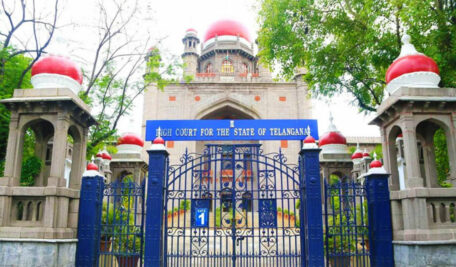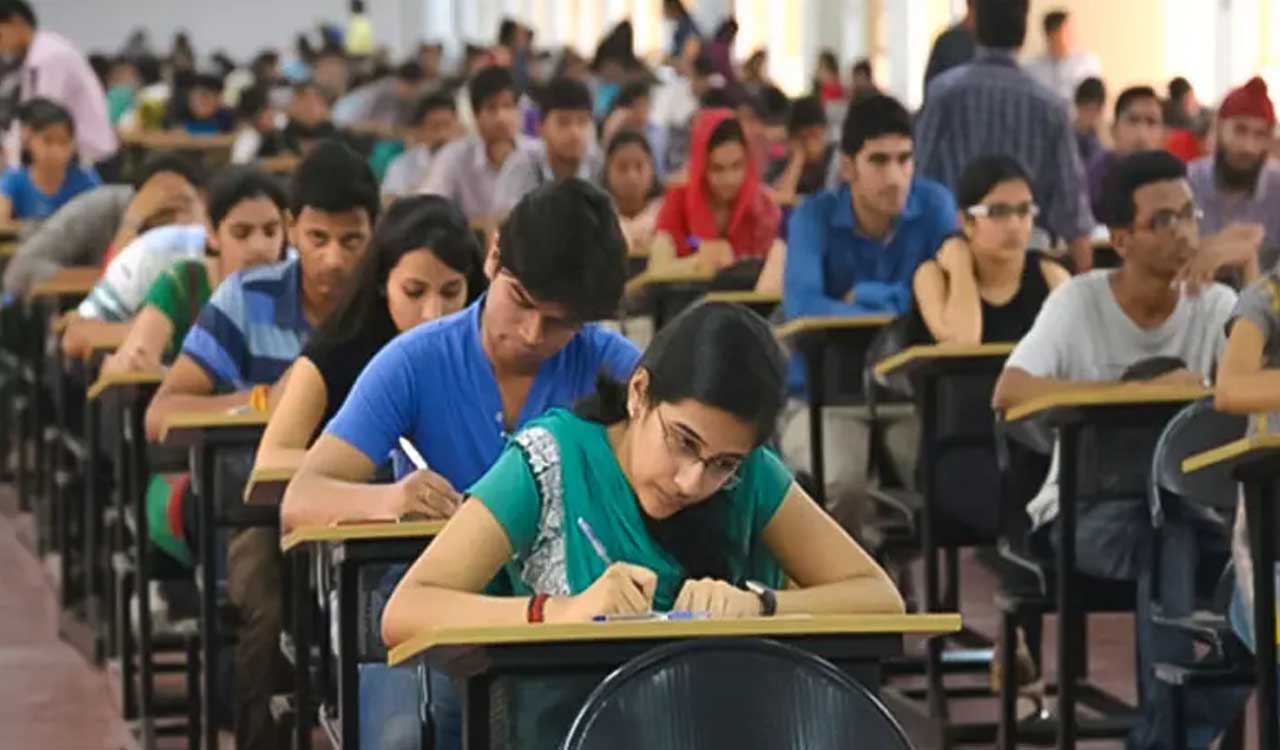Congress Govt blames ‘Kurkure’ even as Telangana High Court raps ‘callous’ Govt on food poisoning incidents
The High Court criticizes state government for inaction on recurring food poisoning at Maganur Zilla Parishad High School, questioning intervention only after court orders, despite worm-infested food concerns.

Hyderabad: A two judge bench of the Telangana High Court comprising Chief Justice Alok Aradhe and Justice J. Sreenivas Rao on Wednesday came down heavily on the State government over the recurring incidents of food poisoning at the Maganur Zilla Parishad High School in Narayanpet district. The court criticized the State authorities for their lack of action and questioned whether intervention would only be forthcoming through High Court orders. Shockingly, despite worm-infested food being pointed out by students at the school, the State government through the Additional Advocate General told the court that it was not the mid-day meals, but ‘Kurkure’ snacks bought by the students from nearby shops that had led to the food poisoning incidents.
Earlier, during a hearing on a Public Interest Litigation (PIL), the bench expressed shock at the State machinery’s apparent apathy towards the issue, highlighting that children from underprivileged families were suffering and dying after consuming contaminated food. “Are the officials sleeping or is the State machinery even working?” Chief Justice Aradhe asked, pointing out the government’s failure to protect vulnerable children in government schools.
Also Read
The court expressed its outrage over the repeated food poisoning incidents across schools in Telangana. “We should feel ashamed of such incidents,” the bench remarked, condemning what it called ‘callousness, utter carelessness, and non-seriousness about the lives of the children of poor families’. Justice Aradhe further questioned the apathy of the district education officers (DEOs), asking if food meant for children turned into poison, wasn’t it inhumane.
The observations were made in the context of a PIL filed by Keetinidi Akhil Sri Guru Teja, president of Help the People Charitable Trust, which raised concerns about the quality of mid-day meals in government schools. The PIL highlighted that the meals provided to students were falling short of the nutritional and quality standards required under the National Food Security Act, 2013. The petition also called for the establishment of a committee to regulate private school fees. Advocate Chikkudu Prabhakar, representing the petitioner, detailed the alarming food poisoning incidents. The most recent cases occurred at Maganur School, where on November 20, 100 students fell ill after consuming mid-day meals, followed by another 30 students on Tuesday. Additionally, a tragic incident in Burugupally village of Karimnagar district, resulted in the death of a child after consuming food from a government school.
The State government’s response came under heavy criticism during the hearing. When asked to address the food poisoning incidents, the government’s counsel sought a week’s time to provide a detailed report, a request that angered the bench. Chief Justice Aradhe expressed his displeasure, saying: “Instead of asking for a week’s time, why are you not calling the District Education Officer or the supervisor of the mid-day meal programme to inquire into the situation? This is not acceptable.”
The court questioned the indifference of the officials and asked whether they were waiting for another child’s death before taking action.
“Are you waiting for the High Court to tell you what to do?” the bench remarked sharply. The Chief Justice then directed the presence of Additional Advocate General (AAG) Mohammad Imran Khan to represent the case on behalf of the State.
In his submission, AAG Imran Khan said 300 students had consumed the mid-day meal on November 26, but only 27 students had fallen ill. He claimed that the illness was caused by Kurkure, a snack purchased from nearby shops, and not the school-provided meal. He also mentioned that the headmaster of the school and the mid-day meal provider had already been suspended pending further investigation. Imran Khan assured the court that the government was taking the matter seriously and promised a thorough investigation. He emphasized that corrective measures were immediately implemented after the incidents, including suspensions and health checks for the affected students. He also stated that the government would take further disciplinary action against those responsible for the food poisoning. Despite the government’s explanation, the court was not convinced about government ensuring accountability and preventing future incidents. The bench issued a series of directives to the State authorities. These included directing the Commissioner of Women Development and Child Welfare and the Director of the Institute of Preventive Medicine to collect food samples from all districts for laboratory testing to ensure compliance with safety standards; assessment of quality and nutritional value of mid-day meals in line with guidelines set out in Schedule 2 of the National Food Security Act, 2013; and a detailed report on the food poisoning incidents, the actions taken by the government, and the preventive measures to be implemented, within two days.
The court emphasized the urgency of these measures and stated that the safety and well-being of students must be a top priority for the State government. The case was adjourned until December 2 for the detailed report from the State. In his concluding remarks, Chief Justice Aradhe reminded the State government of its responsibility to protect children, describing them as the future of the country.
Related News
-
After top court blow, Trump seeks 15% global import tariff
8 hours ago -
One year on, no closure for SLBC victims’ families
9 hours ago -
India face South Africa in crucial T20 World Cup Super Eight clash
9 hours ago -
Rain forces washout in New Zealand-Pakistan T20 World Cup match
9 hours ago -
Hyderabad’s Nehru Zoological Park welcomes real-life ‘Rafikis’
9 hours ago -
India clinch first Women’s T20I series victory in Australia since 2016
10 hours ago -
Sowmya selected for Indian women’s football team for AFC Cup 2026
10 hours ago -
Lohitha Sai wins girls’ recurve gold at CM Cup archery
10 hours ago




